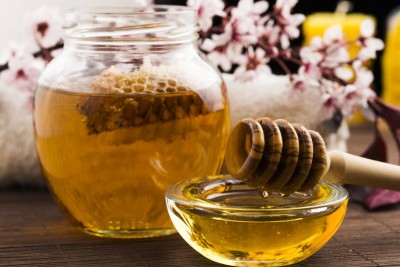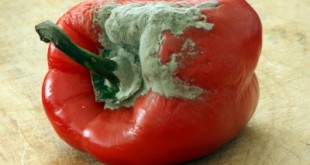Native to the drier areas of New Zealand and southeast Australia, the Manuka tree (Leptospermum scoparium) is a small evergreen shrub bearing pretty white flowers. Manuka honey is one of its most valuable assets. It is also known as “tea tree” because of its use in making a tea – Captain Cook reportedly wrote of this in his diary. The strong and bitter flavor, however, may not make it a favorite!
Manuka honey has been used since ancient times for its medicinal uses. Most types of honey have antibacterial properties because of their hydrogen peroxide content. But Manuka’s bactericidal properties are due to methylglyoxal, a substance from the nectar of the Manuka tree.
USES FOR MANUKA HONEY
1) Various types of wound healing:
a) Healing of chronic leg ulcers in diabetics where conventional treatments have failed
b) Healing of stomach ulcers
c) Healing of skin infections from burns
d) Topical application to heal infections from deep surgical wounds
e) Failed healing of infections using conventional treatments (including Staph and MRSA)
f) Use on skin grafts and infected donor sites
2) May possibly help repair damaged intestinal mucosa (lining)
4) Sore throats
5) Included in treatments for tinea, dandruff, psoriasis, and hemorrhoids
6) Used in cosmetics as an emollient and humectant (shampoo and conditioners, creams, lip ointments)
HOW DOES IT WORK?
1) Breaks up biofilm – Pathogenic bacteria can form a protective layer that helps them survive the body’s attempts to destroy them. These biofilms also assist them in resisting antibiotics. Manuka honey breaks down the biofilm so that the bacteria is exposed and can be killed.
2) Stimulates immunity by stimulating cytokine (small proteins that are important in cell signaling) production.
3) Maintains moistness and provides a thick, protective barrier for the wound.
4) Able to dehydrate the bacteria by drawing moisture from the environment (hygroscopic).
5) Prevents the growth of microbes due to the honey’s low pH and high sugar content.
UMF
With increasing antibiotic resistance, plant-based products exhibiting therapeutic properties have been studied. Manuka honey has proved to be valuable. Though quite expensive, the best quality Manuka is one with a UMF® (Unique Manuka Factor) rating. UMF is used to rate the purity and quality of Manuka honey.
– They are usually listed as 5+, 10+, 15+, 20+, etc.
– It is recommended to choose one that has at least a UMF 10+ rating for therapeutic uses.
– It should have the UMF trademark and be from a New Zealand licensed company.
IMPORTANT: Use with caution and/or consult your healthcare provider if allergic to honey or bee products.
“And he hath brought us into this place, and hath given us this land, even a land that floweth with milk and honey.” (Deuteronomy 26:9 / KJV)
Have you ever used Manuka honey for wound healing? If so, what were the results? How quickly did healing occur by using this treatment?
 The Bottom Line, Ministries Christian News, Articles, & Poetry
The Bottom Line, Ministries Christian News, Articles, & Poetry 





Thank you, Denise, for your interesting article. I am always looking for ways to keep it “natural” when applying healing ointments. This looks like a good one to keep in mind for when the need arises.
Thank you, Stephanie. I completely agree. I’ve read and heard several testimonials as to Manuka’s effectiveness as a topical application.